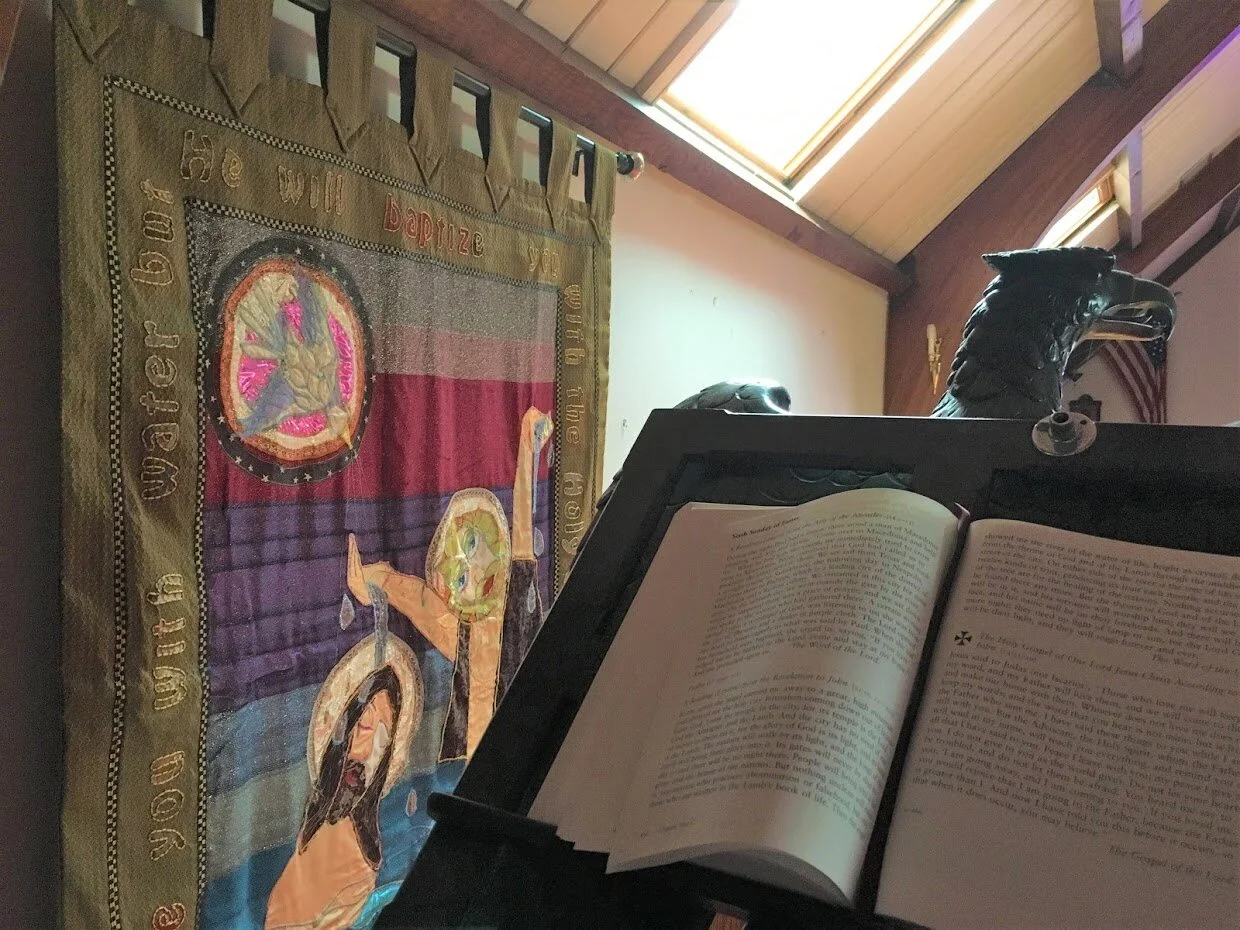Rethinking Martha and Mary
A Sermon by the Rev. Peter De Franco
Something in the story of Jesus visiting the home of Martha and Mary eats away at the hearts of many of us. Whenever we hear a story from the Gospels, we usually identify with one of the characters and most of us identify with Martha. Most of us lead busy lives filled with endless activities. Most of us yearn for some help in our activities so we feel Martha’s anguish when she cries out to Jesus: "Lord, do you not care that my sister has left me to do all the work by myself? Tell her then to help me." Since many of us identify with Martha we feel that Jesus’ rebuke of Martha criticizes our own life styles. Perhaps something deeper is happening in this story.
All of us know that Martha, Mary and Lazarus appear not only in Luke’s Gospel but also make an appearance in John’s Gospel. In John’s Gospel, we are presented with a very different image of Martha. She shows up twice, at the raising of her brother Lazarus from the dead and at a dinner party her family throws for Jesus after Jesus returns Lazarus to them. In John’s telling of the story, Martha comes across as a leader in the early Christian community. Whereas Peter makes the major confession of Jesus’ identity as the Christ, the Son of God in three of the Gospels, Martha makes that profession of faith in John.
Perhaps we might look at the ways in which Luke presents women in his gospel and discover that Luke would have women quiet and listening throughout this gospel. Could Luke, in his presentation of Martha, be offering a critique of women in ministry and saying that only men should be involved in serving others? In his second volume, the Acts of the Apostles, when the twelve select people to assist them in the work of ministry, only men are chosen. It is clear that today’s gospel passage includes a bias against women, a bias many of us feel and bristle against. But let’s go deeper than the intention to exclude women and find another insight into this story. Instead of placing service and listening to Jesus as opposites, what if we considered them as compliments?
During the Middle Ages, monks and nuns who reflected on this story brought Luke and John together and spoke of the three persons, Martha, Mary and Lazarus as three dimensions of our Christian life. Lazarus illustrates the importance of turning again and again back to God. Martha represents service to others, Mary shows us the role of prayer and listening.
If you live a deep Christian life, you will discover that you always have a need for conversion, for a change of heart. By deepening your conversion, by acknowledging where you need to change and become a better person, you are taking on the role of Lazarus.
You will always need to look out for and serve the least of the brothers and sisters of Jesus. Service to the outcast and the forgotten, caring for the neglected and the abandoned, loving those on the margins, we Christians show our Martha side when we care for others as Christians have cared for Christ in others through the centuries.
You are always called to spend time with Jesus, quietly reading his word, listening to God speak to us in your hearts and responding to God with a heartfelt love. This deep love for Jesus, this deep desire for Jesus, this deep attachment to Jesus lies at the heart of Mary. You show your Mary side when you dwell with Jesus in this deep love.
You can allow yourself to play with today’s gospel, to move beyond the inherent conflict between Martha and Mary. You can allow your inner Lazarus, Martha and Mary to live together in harmony with each other, then you might discover a new depth to your following of Jesus. If you would continue to move ever deeper in changing your hearts, if you would pay attention to the least among us and serve them, if you would give time to discover Jesus in prayer, then your inner Lazarus, Martha and Mary will live in harmony. Part of that harmony lies in developing our Lazarus, Martha and Mary sides. You should understand which side you would prefer to develop and try to cultivate the parts that are harder to nourish.
It is easy to neglect your Lazarus side, to ever deepen your inner purification, to recognize and change those parts of yourself that need to be purified. Most of us engage our Martha side, that part of ourselves that is active and engaged with the world. Our Mary side can be underdeveloped. We find it difficult to take time away from other things and give time for God alone.
We all know the inner challenges of deepening our Christian lives. Yet as you enter more deeply into the mystery of Christ, you will venture to those places that challenge you. As you meet the challenge of developing these three sides of your Christian lives, you create a deep harmony in your heart. That deep harmony will allow you to create a home, an interior place in your heart. You will discover your interior guest, Jesus, coming to dwell within you.





















